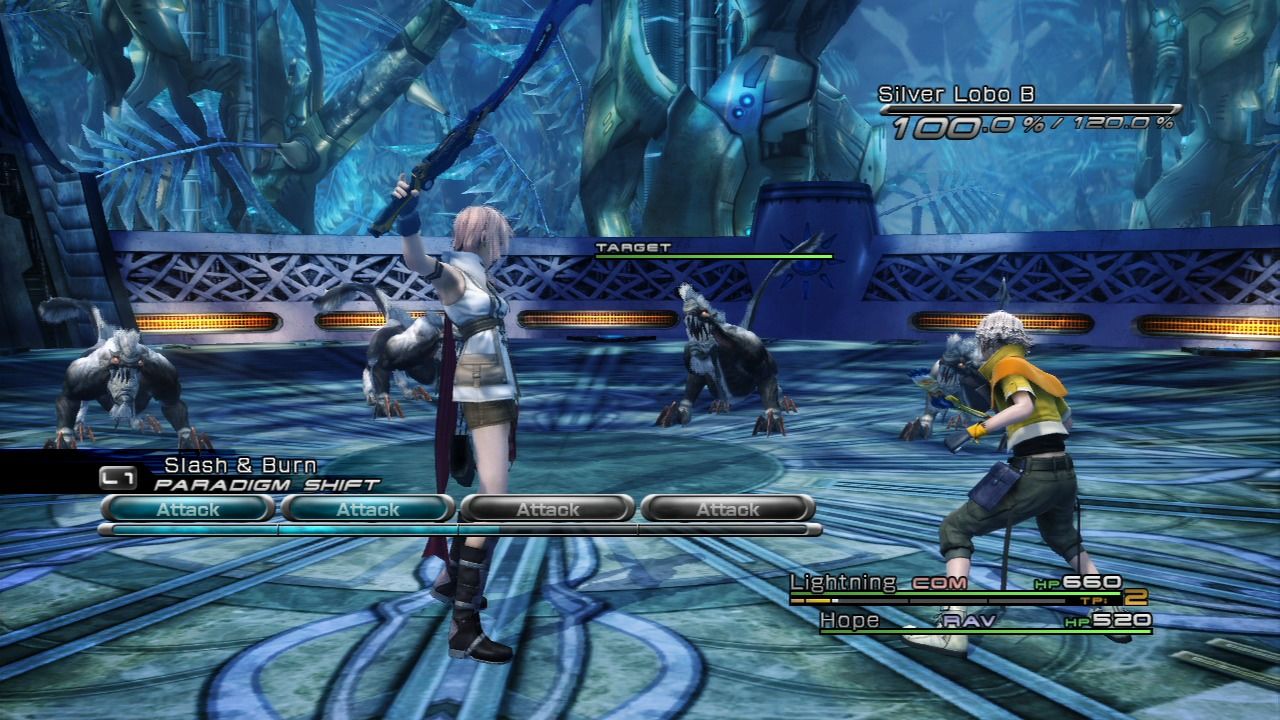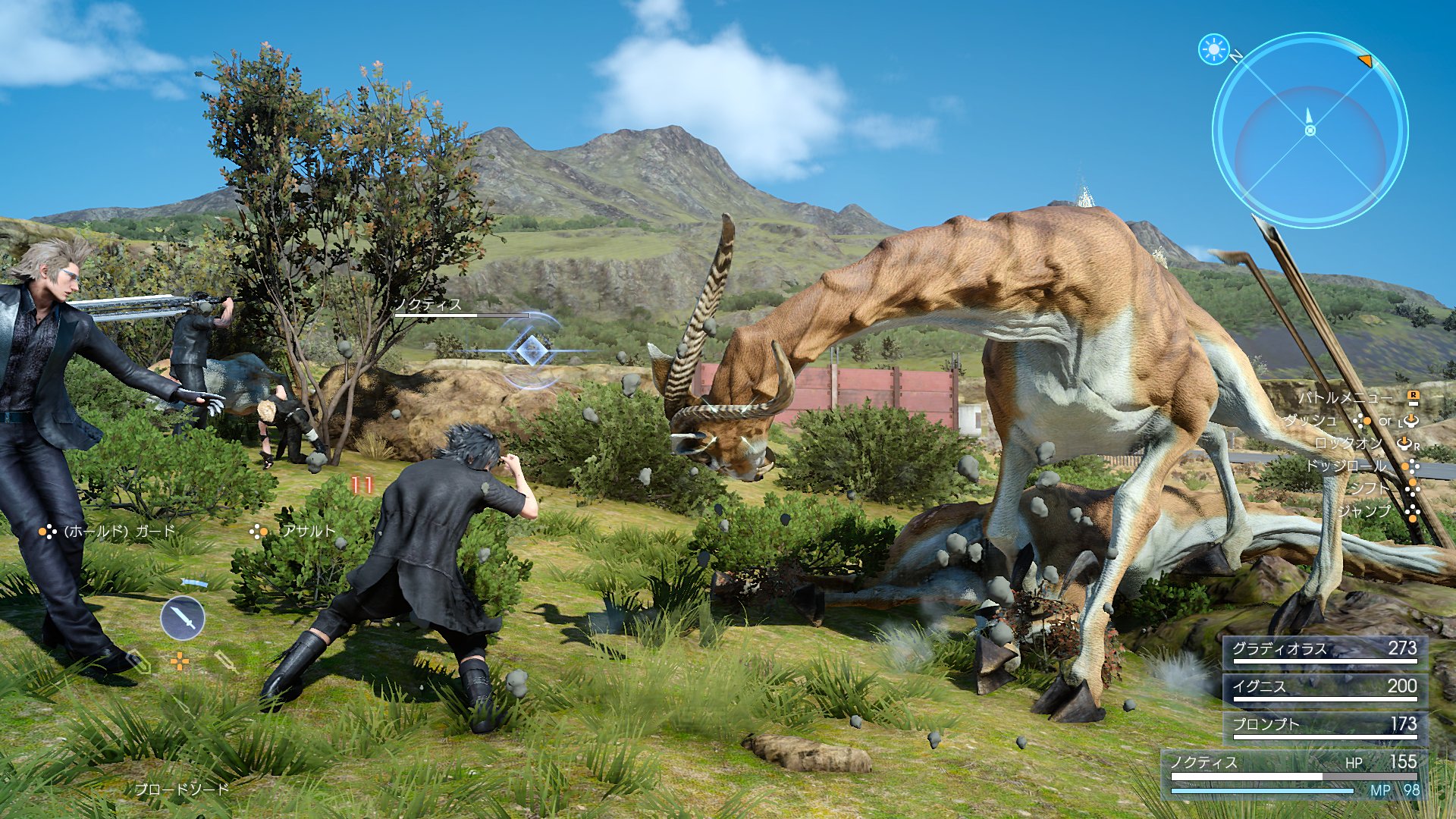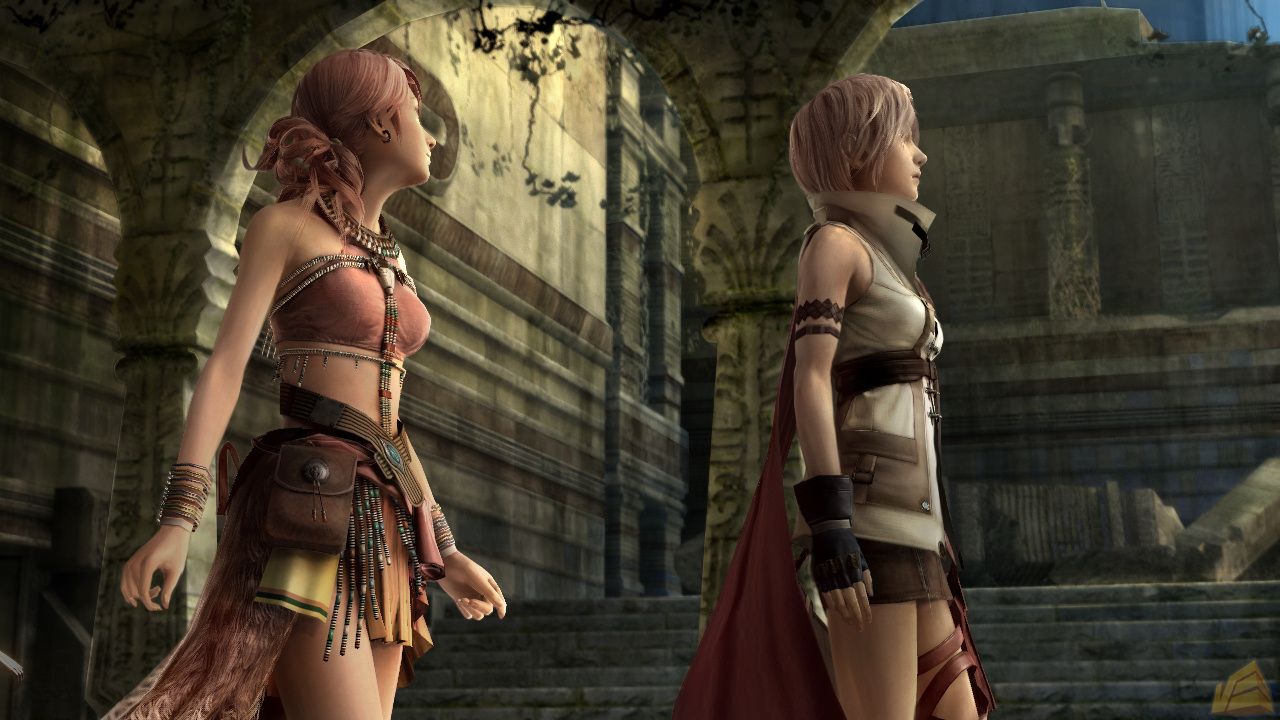For months, I have dreaded the arrival of this day. The day where I would have to write about Final Fantasy XIII on our weekly Throwback Bit Thursday series. My dread on writing about Final Fantasy XIII doesn’t stem from my fading memories of the game as only a little more than a decade has passed since I played it.
My main gripe with writing about the game is that I terribly disliked it as a Final Fantasy entry, and this write-up is likely to stir some controversy amongst our reader base.
A Next-Gen Final Fantasy

Final Fantasy XIII arrived about 4 years into the Xbox 360/PlayStation 3 era. It would be the only original main numbered entry (not counting XIII-2 and Lighting Returns here) on those consoles.
As such, even though Hironobu Sakaguchi’s departure had watered down my expectations for the series as a whole, I did expect good things from Final Fantasy XIII.
My expectations where mainly driven by the game’s spectacular visuals which were powered by Square Enix’s ill fated ‘Crystal Tools’ engine.
Fabula Nova Crystallis What it is This?
Perhaps, Final Fantasy XIII was doomed by Square Enix Executives long before its development was finished. Let’s go back to 2006’s E3 presentation. Final Fantasy XIII was announced as part of a larger “Fabula Nova Crystallis” project. This project was composed of a collection of Final Fantasy games “to be thematically linked” even though the games could individually stand on their own legs in terms of their differing storylines.
However, out of the three titles (the final one being the Japan only “Final Fantasy Type-0” for the PSP) it was the absurdly named “Final Fantasy Versus XIII” game that actually seemed like the more interesting project.
At the time, I felt that the presentation had been a new Square Enix move towards the proverbial “milking” of the series’ name. Final Fantasy XIII should have been the star of the line up, and perhaps in the interest of quality, the only Final Fantasy game on development.
Tetsuya Nomura, who still had somewhat of a good reputation in those days, mainly stemming from his association with all things Final Fantasy VII, and his Kingdom Hearts series was the man behind Versus XIII.
It was odd, however, that Square Enix was splitting teams and diverting talents to three different Final Fantasy games when logic dictated that Final Fantasy XIII should have been the focus of the company’s efforts.
The entire Fabula Nova Crystallis idea felt a bit doomed from the get go, and the project would turn into somewhat of a mess.
Nomura Never Finished Versus XIII Thus it Turned into FFXV

To briefly summarize things: Tetsuya Nomura pulled a ‘Tetsuya Nomura’ move when he procrastinated during Versus XIII’s development, and even introduced some crazy ideas (such as turning the game into a musical). He was removed from the project, and instead, Hajime Tabata would end up ‘saving’ what eventually became Final Fantasy XV.
As for Type-0 (who Tabata also directed), the game made a mark in Japan, and was later released in HD form on the US via the PS4, Xbox One and Windows. The game was showered by pedestrian reviews from critics, but did break the 1 million unit sales barrier.
On to Final Fantasy XIII

So, with that summary of how things turned out for the other games in the “Crystallis” collection we are left to discuss my memories of Final Fantasy XIII, and they are unfortunately, not very good.
Despite the game’s lack of optimization on the Xbox 360 (where I originally played it), I found little to complain about its amazing visuals. Simply put: Final Fantasy XIII was the best looking RPG to come out of Japan at the moment of its release.
The game’s battle system was as fast and furious, as it got for a turn-based game. I have to say that I found it a refinement of the FFX’s own excellent battle system, it felt much faster.
Those two points (graphics, and Battle system) are the only positive things that I have to say about the game.
Crystal Tools Hindered Development
Apparently, Final Fantasy XIII was an experiment in how to develop games using Square’s own in-house engine. Yoshinori Kitase would go on to say that most of the game’s development time was spent on figuring out how to work on the Engine. Perhaps crafting cities and NPCs would have been too great an ask given the circumstances.
If Final Fantasy XIII plays in linear fashion, it is because the developers where forced to do so with what little time they actually had to put the game together under the failed engine. But perhaps, as the next paragraph will illustrate, Final Fantasy XIII had been planned with linearity in mind.
The Call of Duty of JRPGs
Another odd fact is that the developers where influenced by the linearity and ‘set piece’ design of the Call of Duty series’ single player campaign. Square Enix aimed to streamline Final Fantasy into an on-rails experience. To my misfortune, Square Enix succeeded at that.
“The basic RPG functions are to go into towns, prepare for battle by going to shops, then go out in the field. In that sense, Final Fantasy XIII doesn’t have towns or shops—it’s more that players are thrown into a story, presented with different situations as they move forward in the field and keep progressing that way. In that sense it’s more similar to an FPS genre, like Call of Duty” – Motomu Toriyama, Final Fantasy XIII’s Director (via: Kotaku)
Final Fantasy: On Rails, Battle Edition
My main gripe with FFXIII is that it should have been called something else other than a numbered entry. The game didn’t feel or play like a Final Fantasy game out side of its battles, and its character design. Final Fantasy XIII is not a ‘terrible’ game, but it is not a great J-RPG either.
If I add its pedestrian storyline to the list of the game’s woes, then it is easy to understand my disappointment. I ended up with a ”pretty’ Final Fantasy Battle simulator set in a world that felt linear, if devoid of life, and eerily empty.
When I buy a Final Fantasy game I expect to “live” in another world for 50-60 hours. The illusion of living in a “Fantasy” world is greatly aided by the inclusion of an assortment of cities, cultures, and interesting side missions to round up the main adventure. Final Fantasy XIII lacked all of this.
The cast itself was pretty forgettable, aside form Lighting and Vanille, I barely remember any of the others. It didn’t help that the ‘Uematsu-less’ musical score was pedestrian itself. Leona Lewis’ “In my hands” is the only memorable track in the whole thing, and that’s probably not what most JRPG buffs want to hear.
Linearity, and Emptiness Make FFXIII the Most Divisive Title in the Series
From what I have gather from our NER audience on Facebook, Final Fantasy XIII ranks low with most of series’ fans. I am not surprised, it is not a bad game, but Sakaguchi’s “Lost Odyssey” was more ‘Final Fantasy’ than Final Fantasy XIII could ever hope to be.
It was almost shocking, that in an era where Role-Playing games where moving towards larger worlds, and freedom of exploration, Final Fantasy XIII was designed to be a more linear experience than the first NES Final Fantasy entry more than two decades before it saw the light of day.
This entire article, as it has always been on the TBT section, was based on my personal opinion of the game. I know there are some of our readers that loved the title, and I apologize for my harsh critique, I really did not like FFXIII.
On a positive note, Final Fantasy XIII holds a decent 83 rating on Metacritic. Not a bad score, but a far cry from the series’ golden days.
Agree with the author? Couldn’t disagree more and are frothing at the mouth to tell him? Leave a comment here, on Facebook or send an email and make sure to follow Never Ending Realm on Facebook, Twitter, and YouTube!
